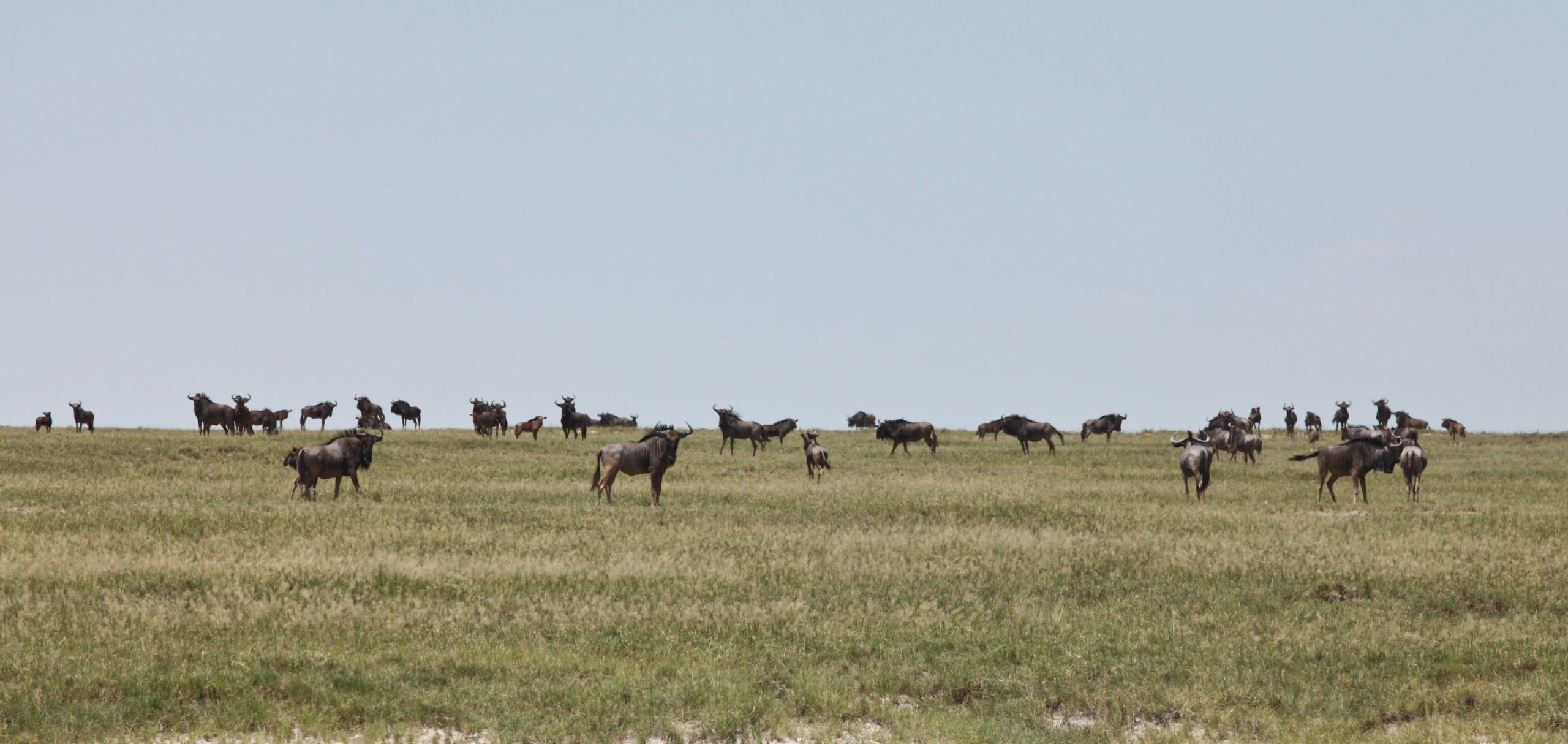As we journeyed northwards, the bare salt flats of the pans gradually became patched with ever bigger islands of stiff salt grass, until they merged into continuous grass plains. On the horizon, palm trees quivered in the mirage, like fine fur in the breeze. And here, there were zebra and wildebeest, some in little clusters, some in quite sizeable herds.
They were restless, these last stragglers of the migrations from the Chobe area to the north, and the Okavango to the west. The salt grass of the flats, for which they had come here months ago was now cropped short, and ripe and innutritious.
The rainy season was more or less over, and their home ranges would be less soggy, and covered in tasty new growth. Soon they, too, would lower their heads and start plodding the ancient paths northwards or westwards, as many of them had already done, and have done for millennia. It would take them weeks of foraging meander to reach their destinations, sometimes along routes considerably further than the two hundred and fifty-odd kilometres that is the straight-line distance.
There, they would have their young, all within a relatively short period, so that they would have a better chance of surviving the onslaught of the many predators. By early December, when the rains start, the calves and foals would be strong and able to undertake the journey to the pans, and the herds would once more start to move east and south. For weeks they would traipse along, and from early January they would start to brim onto the grass plains of the pans.
Such, in slow ebb and flow, with tragedy and boon, the rhythm has been for eons. And so it will be, until some cataclysmic earth event or brutal human intervention changes it. Standing here, quiet in the midst of it made me feel part of its ancient cadence, of, dare I say, Gaia’s very soul. I felt humbled and grateful, somehow re-assured that She still kept functioning in Her own way, despite the terrible scars that my kind had left on Her.
